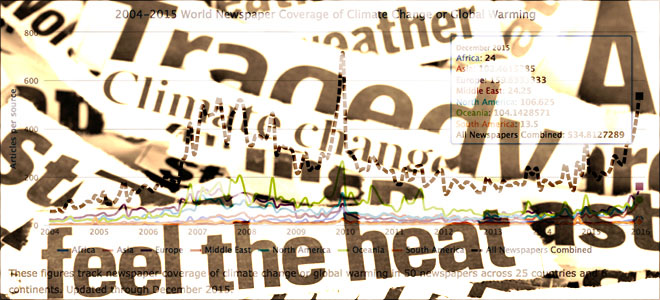
by Maxwell Boykoff and Gesa Luedecke
Oxford Research Encyclopedia, Climate Science
December 2016
During the past three decades, elite news media have become influential translators of climate change linking science, policy, and the citizenry. Historical trends in public discourse—shaped in significant part by elite media—demonstrate news media’s critical role in shaping public perception and the level of concern towards climate change. Media representations of climate change and global warming are embedded in social, cultural, political, and economic dimensions that influence individual-level processes such as everyday journalistic practices. Media have a strong influence on policy decision-making, attitudes, perspectives, intentions, and behavioral change, but those connections can be challenging to pinpoint; consequently, examinations of elite news coverage of climate change, particularly in recent decades, have sought to gain a stronger understanding of these complex and dynamic webs of interactions. In so doing, research has more effectively traced how media have taken on varied roles in the climate change debate, from watch dogs to lap dogs to guard dogs in the public sphere. Within these areas of research, psychological aspects of media influence have been relatively underemphasized. However, interdisciplinary and problem-focused research investigations of elite media coverage stand to advance considerations of public awareness, discourse, and engagement. Elite news media critically contribute to public discourse and policy priorities through their “mediating” and interpretative influences. Therefore, a review of examinations of these dynamics illuminate the bridging role of elite news coverage of climate change between formal science and policy, and everyday citizens in the public sphere. Read more …

